Outer circle
We prepare young people to blaze a trail in whatever field they choose. They leave us equipped with a breadth of skills, ready to become responsible global citizens.
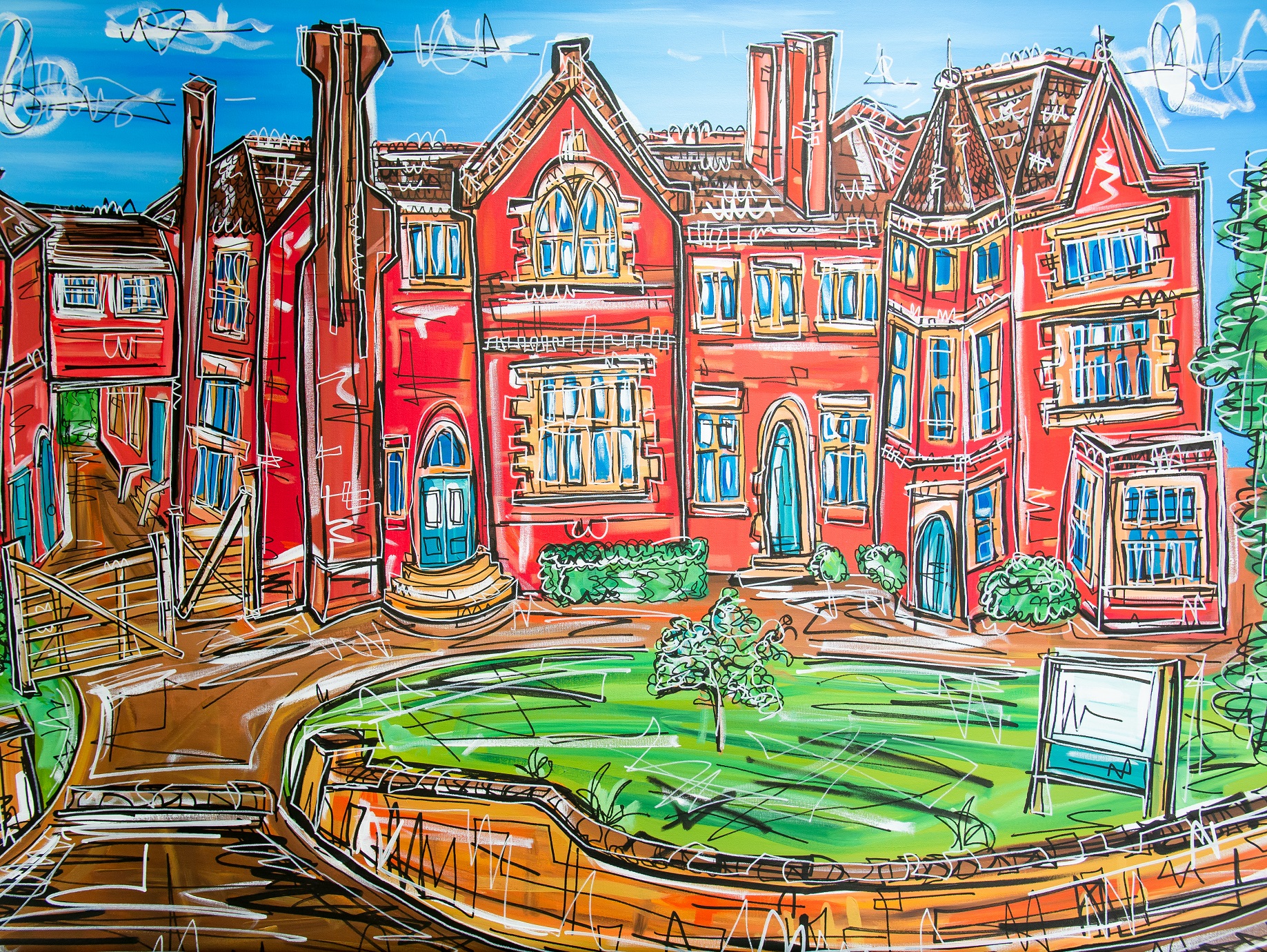
Knowledge versus skills? The debate goes on and on – but we believe that it isn't a choice between one or the other.
Our Learning Wheel places the pupil at its core, is holistic and integrates the key areas of knowledge and understanding with thinking skills and learning characteristics.
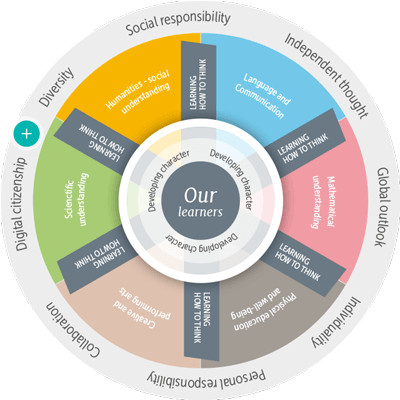
We prepare young people to blaze a trail in whatever field they choose. They leave us equipped with a breadth of skills, ready to become responsible global citizens.
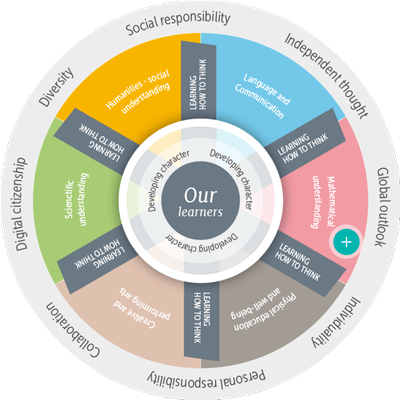
We group our subjects together into six curriculum areas. We teach subjects in an integrated way, because the future belongs to those who can think way beyond narrow subject boundaries.
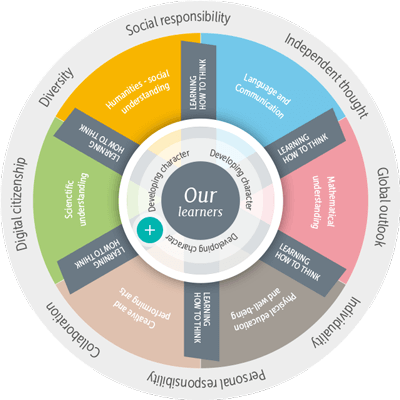
Education is not just about imparting knowledge. It’s about teaching young people how to think for themselves: critically, creatively and collaboratively.
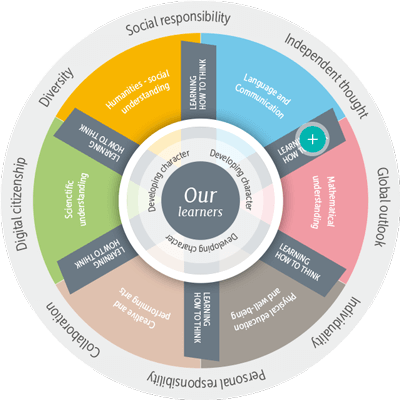
Fostering a secure bedrock of self-esteem and a sure moral compass is essential preparation for a future in a complex world.
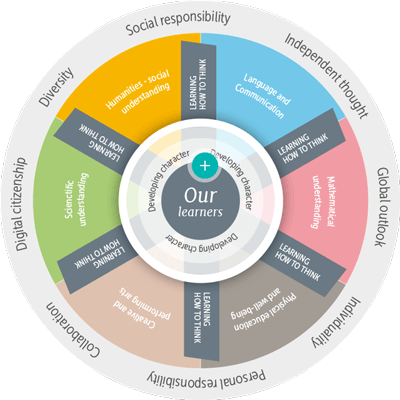
Our schools are small enough to ensure that each learner is known. By placing our learners at the centre of our approach, we create an education that allows individuality to flourish.
How do you quantify courage or independence? How much does perseverance weigh? What’s the true value of responsibility? Establishing life-long qualities – ranging from curiosity to resilience – is a central part of our approach.
We stimulate our students' curiosity and crucially, teach them to think for themselves.
We nurture learning characteristics that will help our young people to rise to the challenges of school and life beyond.
What you learn in class is only half the story. What happens on the sports field, in our art and music departments, on the stage or in our clubs and societies is just as important.
Our teachers and students are using technology to unlock exciting new ways to collaborate, connect and learn.
Cookie Policy